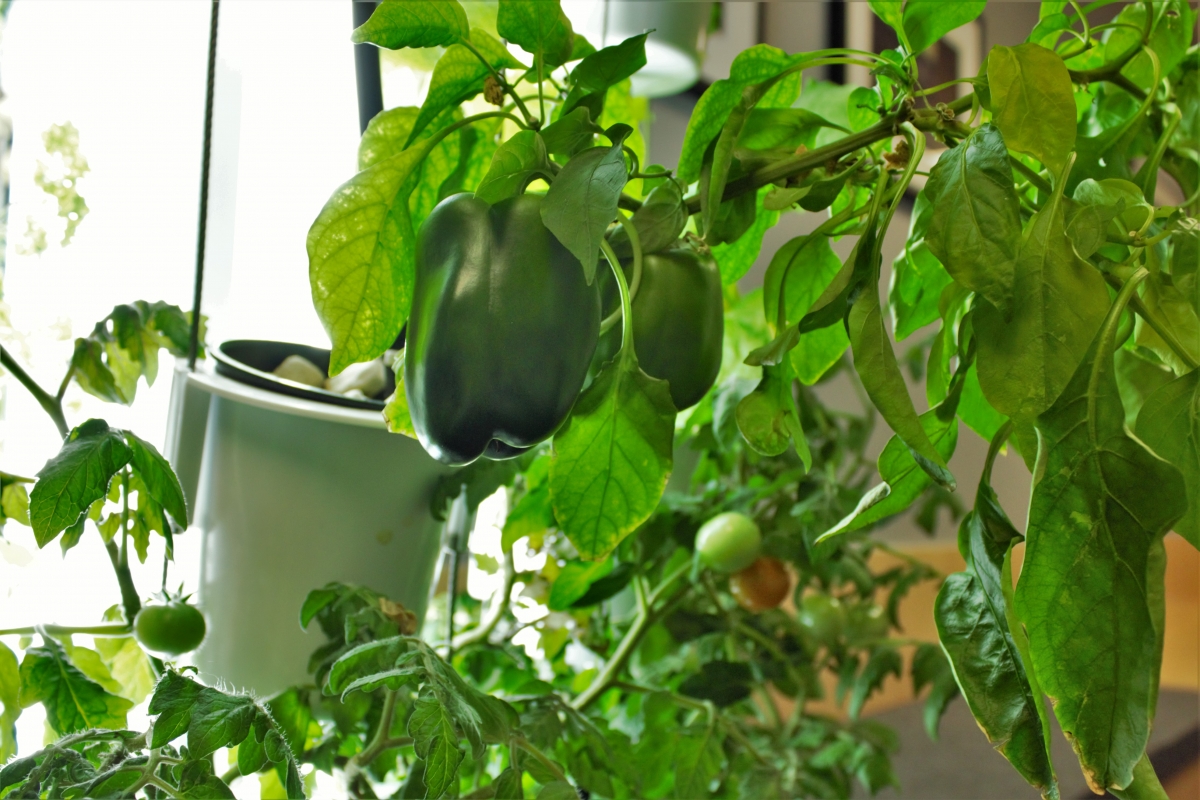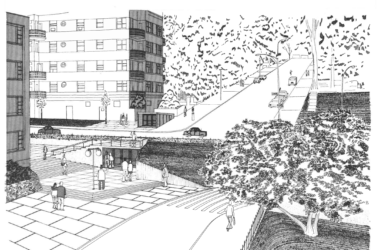As the long Montreal winter approaches, students are dreading the months of monochrome monotony to come, from cement buildings to white walls. The SSMU Environment Committee, in partnership with Montreal-based hydroponics company Nutritower and the Sustainability Projects Fund, hopes to change that by bringing greenery to residence cafeterias. Sustainability Commissioner Dasha Gousseva started the project last year. She explained how the hydroponic system that underpins the towers works.
“The idea of hydroponic gardening, and these vertical towers specifically, is very low-input local agriculture that maintains itself in a closed system,” Gousseva said. “Plants, instead of needing soil, [get] fertilizer and nutrients from the water itself, [which] is pumped through a system that comes included in the towers [….] LED lights installed in the tower [provide plants with lighting].”
With help from students alongside SSMU Environment Committee members and a representative from Nutritower, the vertical gardens setup event on Saturday revealed the towers for the first time. The team set up towers in three McGill residence cafeterias: Royal Victoria College, New Residence Hall, and Bishop Mountain Hall. Locating the towers in dining halls will allow for the vertical gardens to serve as both an educator about the process of growing food and an actual food source. Given that harvests will be small in comparison to the number of students who frequent these cafeterias, the project plans to incorporate cafeteria-grown produce and herbs into side dishes.
“[We’re currently growing] leafy greens and herbs, which include lettuce, kale, parsley, [and] basil,” Gousseva said. “We’re even trying [to grow] some tomatoes.”
In the future, the SSMU Environment Committee plans to borrow seeds from the MacDonald Campus seed library to expand the range of produce being grown. The Nutritower system allows for plenty of flexibility for what can be grown, which was one reason the Montreal-based company was chosen for the project.
Nutritower was founded by Montrealer Bryce Nagels in 2014, who grew up with fresh produce and was inspired to introduce gardening to city-dwellers. Originally launched on Kickstarter, the growing hydroponics company seeks to address climate change and urban population growth issues. In his campaign statement, Nagels expressed that to secure our future, we must embrace creative technological solutions to feed our population, and that his vertical gardens could be a step in the right direction, however small. He contextualizes Nutritower within the global trend toward a greater proportion of the population living in urban areas and hopes that it will help people better adapt to this transition by bringing home food production to people living in cities.
“[Nutritower’s] goals aligned […] closely with [ours], those goals being to connect people to their food systems and to educate people about how food is grown because [many] don’t realize the steps and all the inputs it takes to get something from [farm to table],” Gousseva said. “They’re also focused on education, primarily [young] students, but they’re also working with universities. [Since they’re also] local, it made working together easy and […] sustainable.”
The vertical gardens will also incorporate much-needed greenery into residence spaces as part of a campus-wide trend toward adding plants to academic spaces. The Sustainability Projects Fund has backed a number of related projects, including the Spin Bike Gardens and Garden Inside, which placed three Nutritowers in the Office for Students with Disabilities (OSD).
The project will also complement existing sustainability initiatives in McGill residence cafeterias, including Waste Educators and Local Food Days, which incorporates seasonal produce and other ingredients from less than 500 kilometres away.
Gousseva plans to work with Student Housing and Hospitality Services to create educational opportunities around the towers and hopes that students will continue to follow the vertical gardens’ progress. Future harvesting events will be posted to the SSMU Environment Committee Facebook page.








